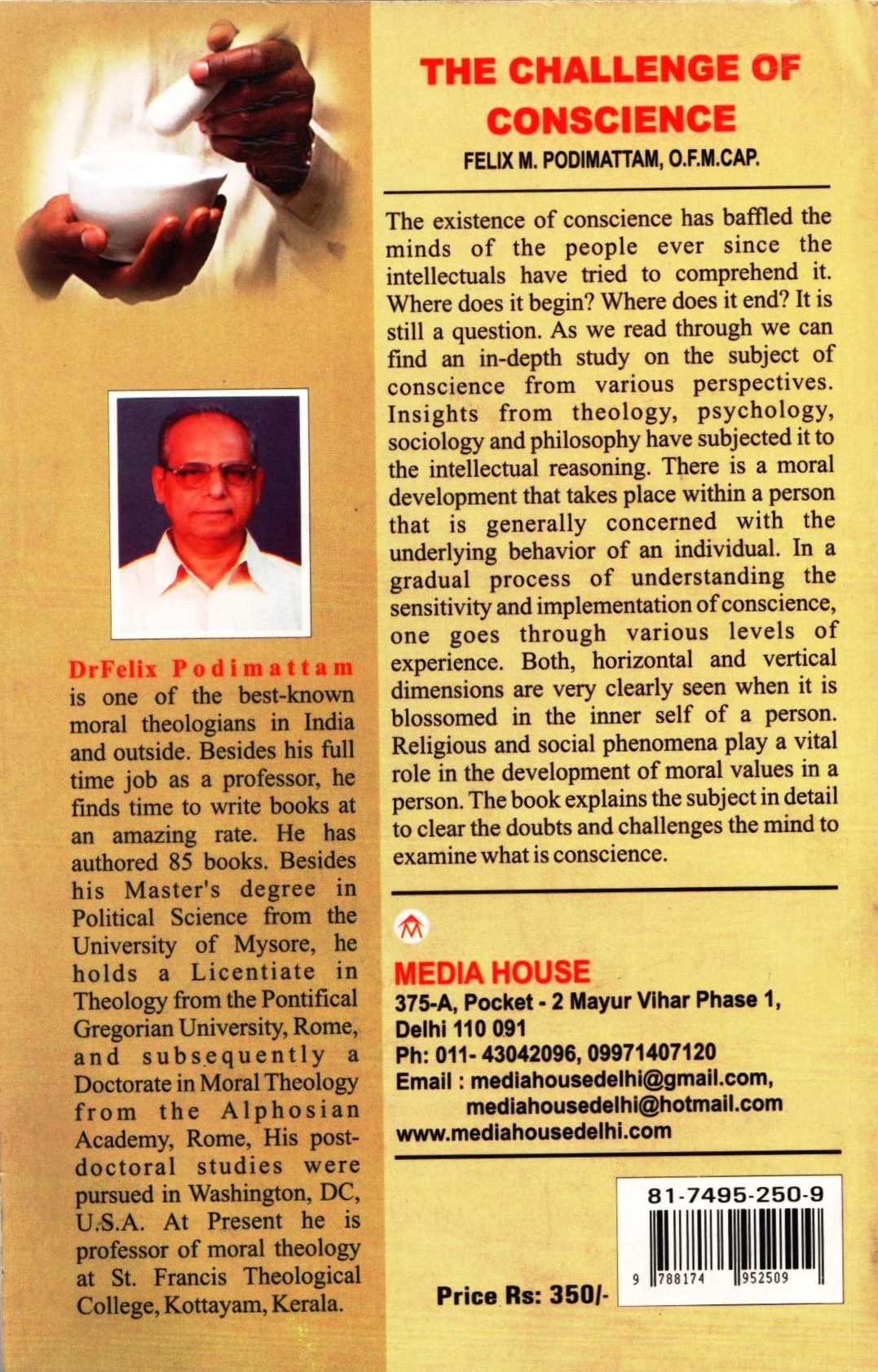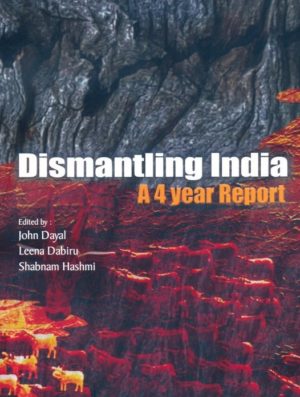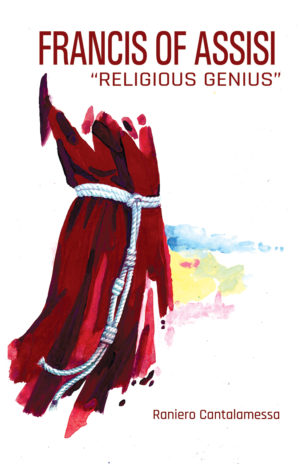Description
CONTENTS-THE CHALLENGE OF CONSCIENCE
INTRODUCTION CHAPTER ONE.
NATURE OF CONSCIENCE
1. What Conscience is Not
2. What Conscience Is
2.1. Survey of Insights
from Theological Sources
2.1.1. Insight from Scripture
2.1.2. Insight from Vatican II
2.1.3. Insight from
Contemporary Theology
2.1.4. Insight from Philosophy
2.1.5. Insight from Psychology 8 5 2.1.6.Insight from Sociology
2.2.Personal Synthesis
3. Conscience and Religion
CHAPTER TWO.
ORIGIN AND DEVELOPMENT OF CONSCIENCE 1
1. Origin of Conscience 115
1.1. Traditional
Explanation of Origin of Conscience
1.2. A Better
Explanation of Origin of Conscience
2. Development of Conscience
2.1. Development of
Conscience from Theological Viewpoint
2.1.1.The Instinctual Conscience
2.1.2.The Ethical Conscience
2.1.3. The Religious Conscience
2.2. Development of
Conscience from Psychological Viewpoint
2.3. When Does a Child .
Become Capable of Committing Sin?
CHAPTER THREE.
FORMATION OF CONSCIENCE
1. Need for Formation of Conscience
2. How Conscience Is Formed
2.1. Moral Education in an Atmosphere of Love
2.2. Moral Education
Inspired by the Presence of Christ
2.3. Moral Education Guided by the Magisterium 185
2.4. Making Responsible Decisions
3. Mature Christian Conscience
3.1. Delaying Gratification
3.2. Dedication to Reality
3.3. Sense of Re-sponsibility
3.4. Capacity for Honest Relationships
3.5. Autonomy
3.6. Universal Altruism
3.7. Sense of Ambiguity and Limitation
CHAPTER FOUR.
AUTHORITY OF CONSCIENCE 214
1. Obligation of Conscience
2. Inviolability of Conscience
3. Inviolability of the Erring Conscience
4. Conscience and Human Law
4.1. Dependence of Human Law on Conscience
4.2. Dependence of Conscience on Human Law
4.3. Independence
of Conscience of Human Law
4.4. Conscience and Authority
5. Conscience and the Magisterium
CHAPTER FIVE.
ANOMALIES OF CONSCIENCE
1. The Doubtful Conscience
2. The Perplexed Conscience
3. The Scrupulous Conscience
3.1. Misconceptions Regarding Scrupulosity
3.2. Meaning of Scrupulosity 345
3.3. Facts about Scrupulosity
3.3.1.The Genesis of Scrupulosity
3.3.2. Incidence of Scrupulosity
3.3.3.Characteristics of Scrupulosity
3.3.4.Common Fears of the Scrupulous
3.4. Pastoral Care of the Scrupulous
3.4.1. Methods of Pastoral Care
3.4.2.The Confession
of the Scrupulous Person
CONCLUSION
END NOTES
BIBLIOGRAPHY
INDEX
ABOUT THE BOOK
THE CHALLENGE OF CONSCIENCE
FELIX M. PODIMATTAM, O.F.M.CAP.
The existence of conscience has baffled the minds of the people ever since the intellectuals have tried to comprehend it. Where does it begin? Where does it end? It is still a question. As we read through we can find an in-depth study on the subject of conscience from various perspectives. Insights from theology, psychology, sociology and philosophy have subjected it to the intellectual reasoning. There is a moral development that takes place within a person that is generally concerned with the underlying behavior of an individual. In a gradual process of understanding the sensitivity and implementation of conscience, one goes through various levels of experience. Both, horizontal and vertical dimensions are very clearly seen when it is blossomed in the inner self of a person. Religious and social phenomena play a vital role in the development of moral values in a person. The book explains the subject in detail to clear the doubts and challenges the mind to examine what is conscience.
ABOUT THE AUTHOR
DrFelix Podimattam is one of the best-known moral theologians in India and outside. Besides his full time job as a professor, he finds time to write books at an amazing rate. He has authored 85 books. Besides his Master’s degree in Political Science from the University of Mysore, he holds a Licentiate in Theology from the Pontifical Gregorian University, Rome, and subsequently a Doctorate in Moral Theology from the Alphosian Academy, Rome, His postdoctoral studies were pursued in Washington, DC, U.S.A. At Present he is professor of moral theology at St. Francis Theological College, Kottayam, Kerala.








Reviews
There are no reviews yet.